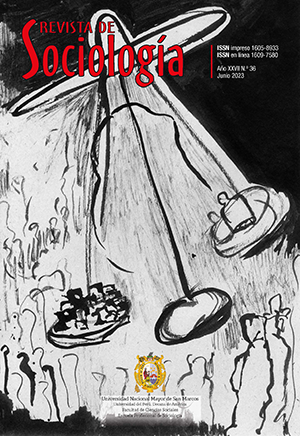Late motherhood in the City of Buenos Aires: experiences and voices of women who become mothers after the age of 35
DOI:
https://doi.org/10.15381/rsoc.n36.26650Keywords:
late motherhood, culture, womenAbstract
In the City of Buenos Aires, we have been witnessing a process of fertility decline year by year since approximately 2008. Currently, the total fertility rate is 1.48 children per woman, i.e., below generational replacement. At the same time, the average age of mothers is 32.4 years (31,1 years for first-time mothers and 33,5 years for non-first-time mothers). Based on these data, it is evident that women in the City of Buenos Aires are having fewer children and at increasingly later ages. In this sense, this paper aims to reflect, based on the testimonies of women who became mothers after the age of 35, on their experiences of late motherhood, paying special attention to their cultural practices, their representations of the family, motherhood, and the role of women in society, among others. This research is part of the doctoral thesis “Late motherhood in middle class women in the city of Buenos Aires: new practices and cultural models”.
Downloads
Published
Issue
Section
License
Copyright (c) 2023 Julieta Astorino

This work is licensed under a Creative Commons Attribution 4.0 International License.
AUTHORS RETAIN THEIR RIGHTS:
a. Authors retain their trade mark rights and patent, and also on any process or procedure described in the article.
b. Authors retain their right to share, copy, distribute, perform and publicly communicate their article (eg, to place their article in an institutional repository or publish it in a book), with an acknowledgment of its initial publication in the Revista Sociología.
c. Authors retain theirs right to make a subsequent publication of their work, to use the article or any part thereof (eg a compilation of his papers, lecture notes, thesis, or a book), always indicating its initial publication in the Revista Sociología (the originator of the work, journal, volume, number and date).






